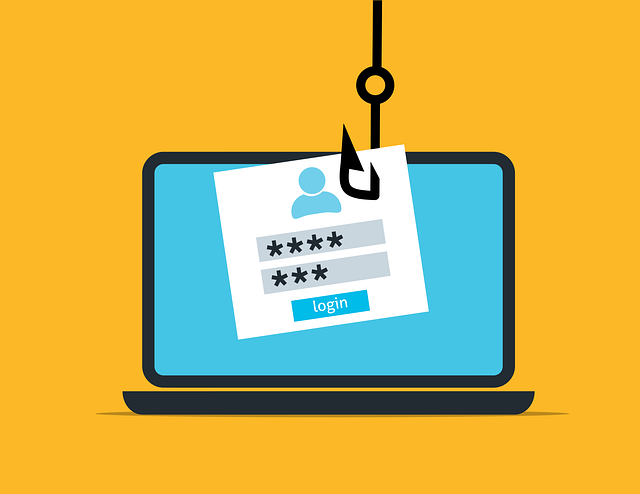Background checks, especially school employee checks, are vital for educational institutions to ensure student safety and maintain a secure learning environment. These thorough screenings involve verifying criminal history, employment records, and qualifications to prevent individuals with malicious intent or inappropriate backgrounds from accessing students. Legal mandates require these checks, protecting schools from financial penalties and reputational damage while fostering trust and accountability in hiring decisions. Digitalizing the process enhances security and efficiency.
Education institutions face a significant responsibility in ensuring the safety of students, staff, and faculty. Background check rigor plays a pivotal role in this process, as it helps identify potential risks and protect vulnerable individuals. This article delves into the crucial aspect of school employee checks, exploring their significance, legal implications, and best practices for efficient verification. By understanding these key elements, institutions can enhance transparency and mitigate risks effectively.
- Understanding the Importance of Background Checks
- The Role of School Employee Checks in Safety
- Legal Implications and Compliance for Institutions
- Enhancing Transparency with Thorough Checks
- Preventing Risks through Rigorous Screening
- Best Practices for Efficient Background Verification
Understanding the Importance of Background Checks

Background checks are an indispensable component of any education institution’s hiring process. They serve as a vital tool to ensure the safety and security of students, staff, and the broader school community. By thoroughly examining potential candidates’ pasts, institutions can mitigate risks associated with hiring individuals who may pose potential threats or have undisclosed issues that could impact their ability to work with vulnerable populations.
In the context of school employee checks, these investigations go beyond basic verification to uncover any red flags related to criminal history, previous employment discrepancies, or other relevant information. Such measures are not only legally mandated in many regions but also reflect a commitment to fostering a safe and supportive learning environment. Effective background check processes empower educational facilities to make informed decisions, ultimately safeguarding the well-being of everyone involved.
The Role of School Employee Checks in Safety

School employee checks play a pivotal role in ensuring the safety and security of students, faculty, and staff within educational institutions. These rigorous background screenings are an essential tool to protect vulnerable populations by verifying the integrity and suitability of individuals working closely with children and young adults. Through comprehensive checks, schools can mitigate potential risks associated with employees or volunteers, fostering an environment free from harm.
By delving into historical records, criminal databases, and previous employment references, school employee checks uncover any red flags that may indicate a propensity for harmful behavior. This proactive approach allows educational facilities to make informed decisions, preventing individuals with questionable backgrounds from gaining access to students. Such measures are particularly crucial in safeguarding against instances of bullying, abuse, or exploitation, thereby enhancing overall campus safety.
Legal Implications and Compliance for Institutions

Education institutions face significant legal implications and compliance challenges when it comes to background check rigor, particularly for school employee checks. Failure to conduct thorough and accurate background screenings can expose schools to various risks, including potential liability for employment-related incidents, damage to their reputation, and financial penalties.
Many countries have stringent laws and regulations in place that govern the conduct of school employee checks. These legal requirements vary but generally mandate institutions to verify an applicant’s identity, criminal history, and other relevant information. Non-compliance with these regulations can lead to legal action against the institution, resulting in costly settlements and damage to their operational integrity. Therefore, it’s crucial for education bodies to implement robust background check procedures as a vital component of their risk management strategy.
Enhancing Transparency with Thorough Checks

Education institutions play a pivotal role in shaping future generations, making it imperative that they maintain the highest standards of integrity and safety. A crucial aspect of achieving this is by implementing rigorous background checks for all school employees. These comprehensive checks go beyond basic employment verification, delving into an individual’s past to uncover any potential red flags. By examining criminal records, academic qualifications, and previous employment history, institutions can ensure they hire trustworthy and qualified staff.
Thorough school employee checks enhance transparency and foster a culture of accountability. It allows schools to make informed decisions when assembling their teaching and administrative teams, reducing the risks associated with hiring individuals with undisclosed or problematic backgrounds. This proactive approach not only safeguards students but also upholds the institution’s reputation as a responsible guardian of knowledge and growth.
Preventing Risks through Rigorous Screening

Education institutions play a critical role in shaping young minds, making it imperative that they prioritize safety and security. One essential aspect of ensuring a secure learning environment is conducting thorough background checks on school employees. These comprehensive screenings serve as a robust defense mechanism against potential risks and threats. By verifying an applicant’s history, education, and qualifications, institutions can mitigate the chances of hiring individuals with malicious intentions or a history of inappropriate behavior.
Rigorous school employee checks are not just a compliance measure but a proactive step towards fostering a safe space for students. It enables educators and administrators to make informed decisions, ensuring that every staff member is a positive influence and aligns with the institution’s values. This process can uncover red flags, allowing for swift action to protect both students and faculty from any perceived or actual dangers.
Best Practices for Efficient Background Verification

Education institutions must adopt best practices for efficient background verification to ensure a secure and safe learning environment. One key practice is digitalizing the process, leveraging technology to streamline school employee checks. Automated systems can quickly cross-reference data from various reliable sources, reducing manual effort and potential errors. This digital approach also enhances security by encrypting sensitive information.
Additionally, institutions should focus on comprehensive checkups, verifying not just criminal records but also educational qualifications, previous employment history, and references. Regular updates to background checks are essential due to the dynamic nature of individuals’ lives, ensuring that any changes in their background are promptly captured. A robust verification process contributes significantly to fostering trust and safeguarding students and staff within the school community.






